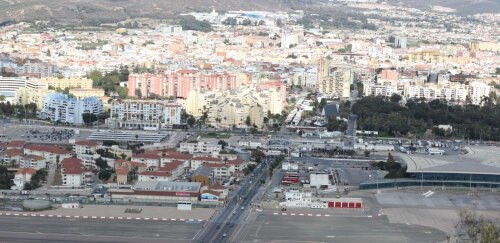18th April 2022
By Brian Reyes and Maria Jesus Corrales
There was confusion at the border on Monday as Spanish police officers began to apply a stricter interpretation of the Schengen Border Code for third country nationals, including British passport holders without a Gibraltar red ID card.
The measures appeared to be applied primarily to pedestrians and not everyone was impacted, with some third-country nationals crossing without a hitch.
But there were reports on social media too that some people hoping to cross into Spain for a day trip had been turned back, even those who held blue Gibraltar ID cards alongside their British passports.
Schengen rules require third country nationals – meaning anyone with a non-EU passport, including those from countries like the UK which do not require a visa for entry – to justify their reason for travel and provide documentary proof of where they will stay, proof of their date of return and evidence that they can fund their time in the Schengen area.
The UK Government applies similar rules for non-resident EU nationals entering the UK.
While the requirements apply to all third country nationals, not everyone crossing a Schengen border will necessarily be checked as immigration guards can apply checks randomly.
The change at the border on Monday appeared to reflect a stricter interpretation of the rules than has previously been the case.
The reason for that change in stance, however, was not clear, although it comes against the backdrop of ongoing talks for a UK/EU treaty on the Rock’s future relationship with the bloc.
Negotiators had hoped to seal an agreement by Easter but that target has lapsed and the talks are set to continue in the coming days.
Contacted by the Chronicle, a spokesman for Spain’s Ministry for Foreign Affairs declined to comment.
The Chronicle also contacted Spain’s Ministry of the Interior, which is responsible for immigration controls, for clarification but we have yet to receive a reply.
A spokesperson for No.6 Convent Place said the Gibraltar Government was aware of the reports.
“The Chief Minister is vigorously pursuing this unannounced change in posture with the Spanish authorities,” the spokesperson told the Chronicle.

